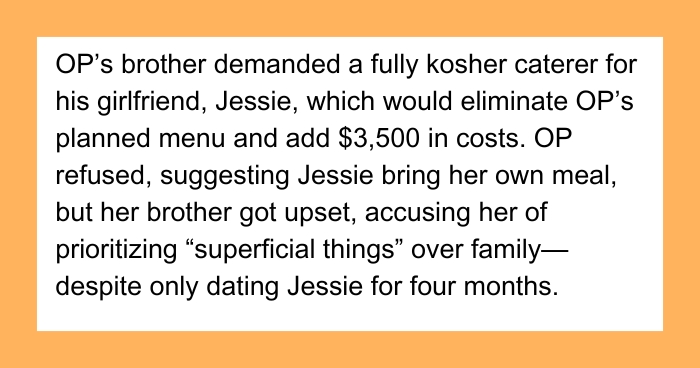‘AITA for refusing to change my entire wedding catering plan for my brother’s GF?’
OP (28F) is getting married sometime in April, and her brother(34M) reached out to her regarding the kosher/ not kosher meal options for his girlfriend Jessie (37F) –Jessie is Jewish–. At first OP was fine with this, thinking she could work around Jessie’s restrictions like she does with guests who have allergies. Yet, when OP mentioned her plans for catering, her brother said that kosher pertains to much more than just the ingredients — it requires an entirely different catering company which follows strict kosher preparation rules. This would eliminate quite a few of the menu items OP had planned, such as her favorite seafood bar, and would also grow costs by $3,500.
But OP wouldn’t change the wedding menu and instead suggested Jessie bring her own food, an offer which her brother claimed was disrespectful. He told OP that by getting Jessie involved, she was missing out and putting “superficial things” over what really matters, her family, despite the fact that he had only been dating her for 4 months and he had to MAKE SURE Jessie got invited in the first place. The other thing is OP wants to know if she is the asshole for not eating what Jessie strictly requires as kosher.
Read for more info Reddit
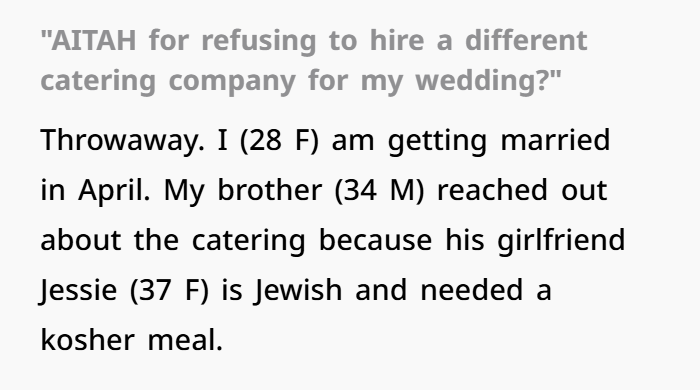
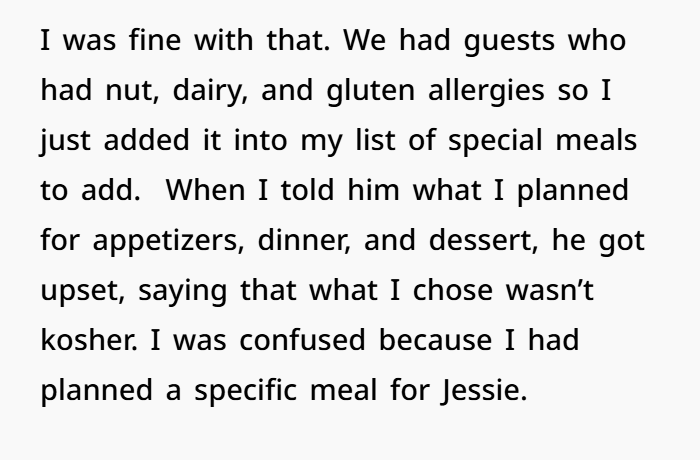
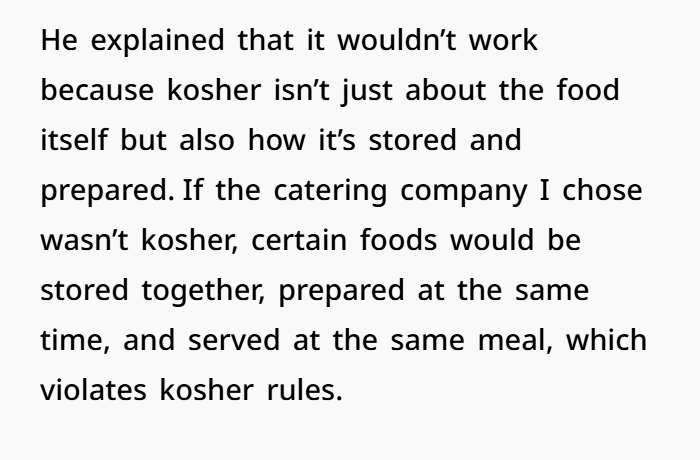
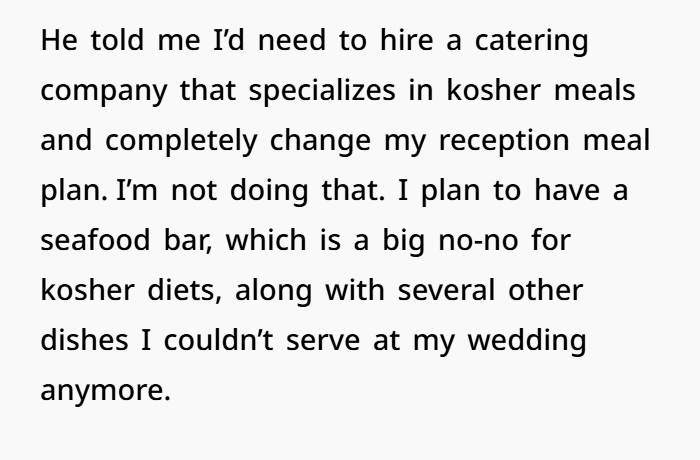

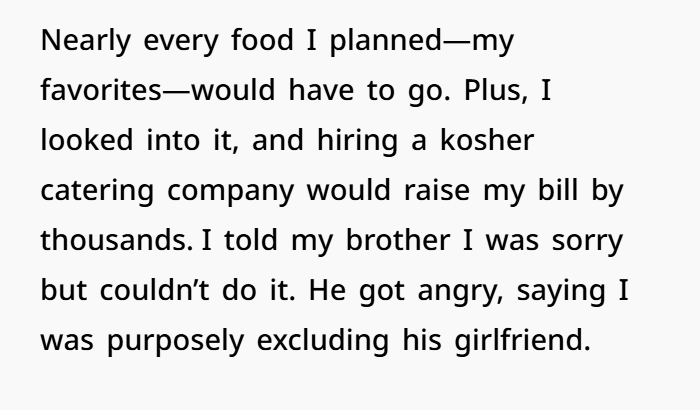
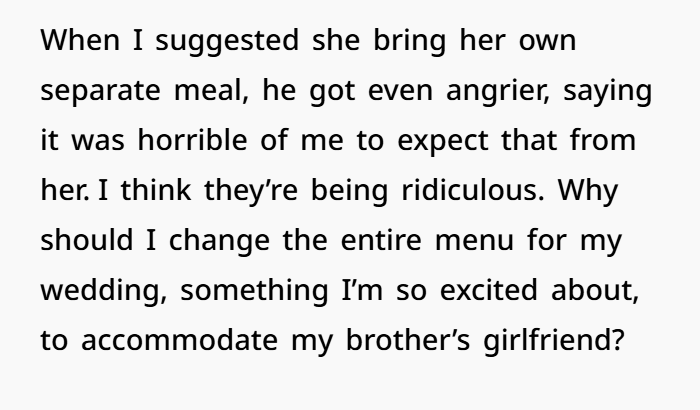
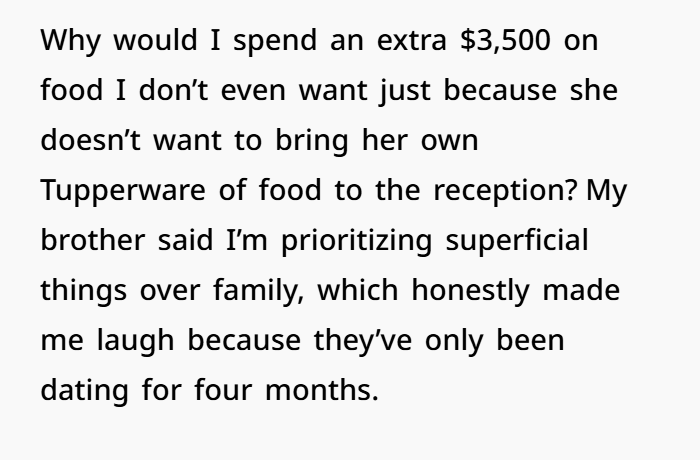
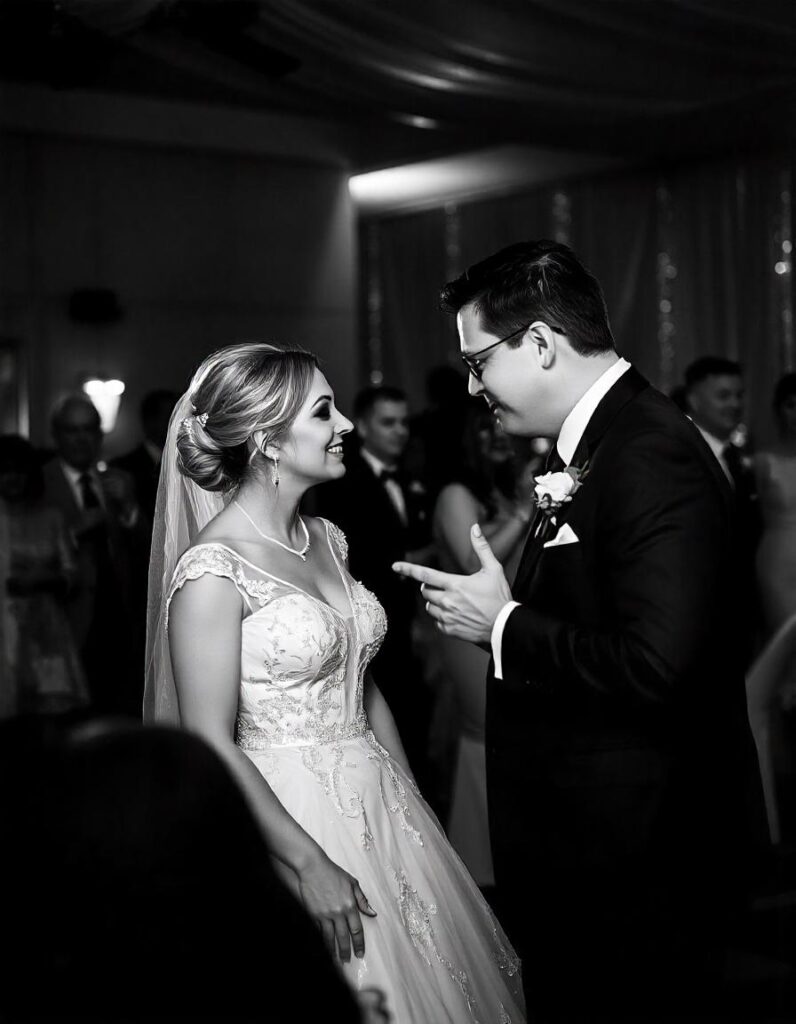

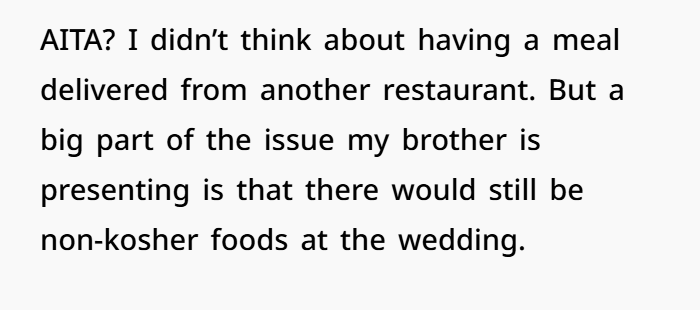
Understanding Kosher Dietary Laws and Wedding Etiquette
Kosher dietary laws, known as kashrut, go far beyond simply avoiding pork and shellfish. To be truly kosher, food must be prepared in a kosher-certified kitchen using approved utensils that have never come into contact with non-kosher items. This extends to storage, serving, and even the presence of non-kosher food in the same space. Many observant Jews also adhere to a level of separation where they avoid eating at venues that serve non-kosher meals, as their interpretation of kashrut sees it as a communal standard rather than just a personal choice.
From an etiquette perspective, accommodating dietary needs at a wedding is a thoughtful gesture, but there are reasonable limits. Typically, hosts are expected to provide vegetarian, gluten-free, or allergy-friendly meals for guests with specific needs. However, when dietary restrictions require extensive logistical changes—such as altering the entire meal or hiring a separate catering company—most would consider it excessive, especially for a guest who is neither part of the immediate family nor someone the bride has even met.
There are alternative solutions, such as having a certified kosher meal delivered from a local restaurant or allowing the guest to bring their own meal discreetly. Some kosher guests are comfortable with this arrangement, but others, like Jessie (or possibly her brother on her behalf), may feel it is still inappropriate given the presence of non-kosher food at the event.
From a fairness perspective, OP is not refusing to accommodate dietary needs—she’s just declining to overhaul her entire wedding for one guest. Wedding etiquette suggests that guests should not expect the couple to radically change their plans, especially when financial and personal preferences are involved.
Reddit Comments:
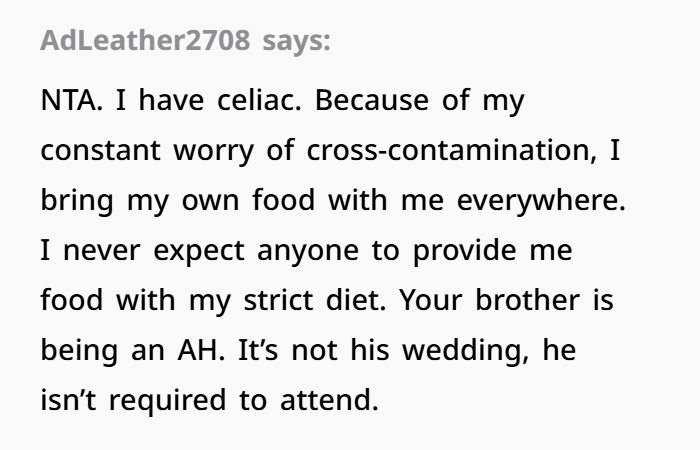
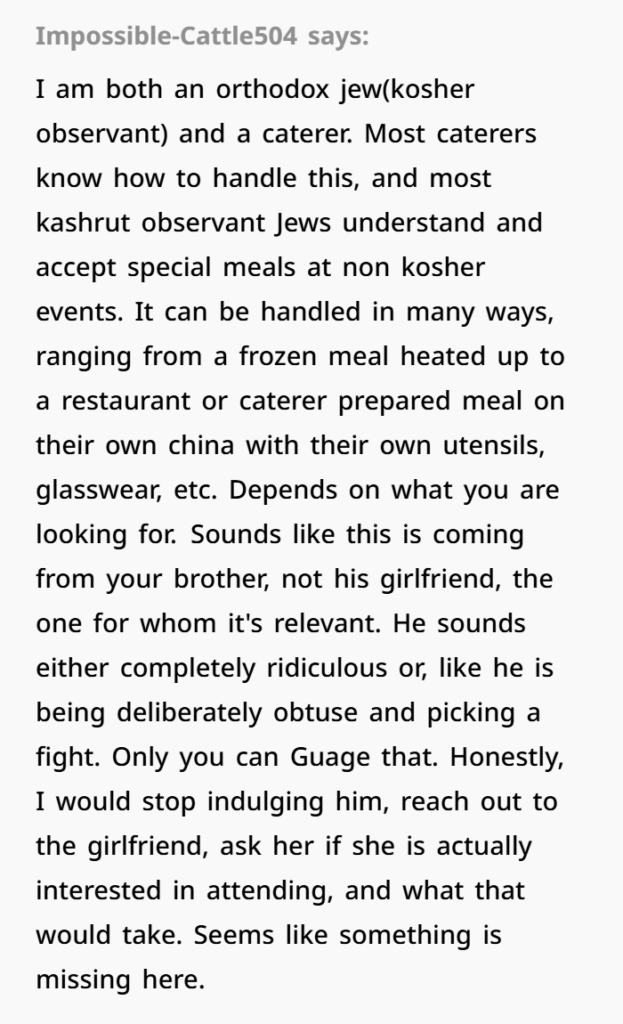


OP attempted to give them kosher food and in the context of a big wedding, that’s a little unreasonable to expect. It is her wedding, and she is under no obligation to either ban foods she herself enjoys, or spend thousands of dollars making sure that one guest reaches a particular personal level of religious observance. It seems a bit unfair for her brother to say that she is “excluding” Jessie when OP was accommodating to Jessie at first. If Jessie’s requirements are that intense while requiring everyone about to eat to change the entire menu would be unpleasant, a trade-off—ordering from a kosher cafe—seems fairer.
I get that her brother wants his girlfriend to be comfortable, but at the end of the day, OP is not the AH in putting her foot down.

